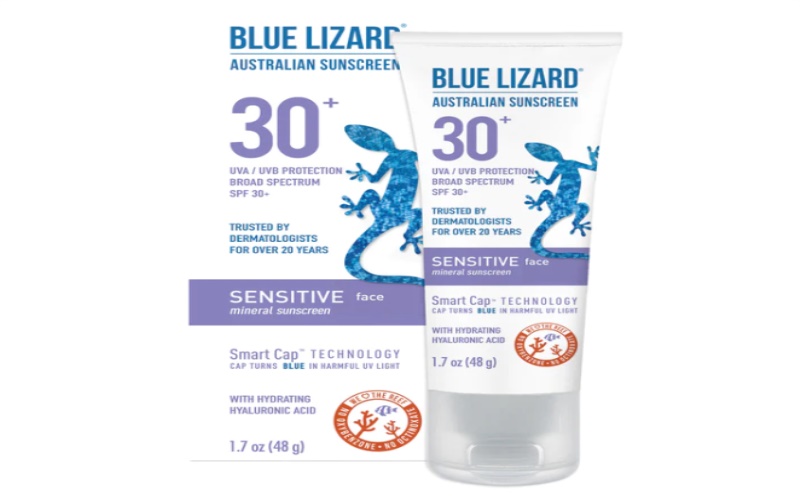There are some fundamental differences between regular sunscreen and sensitive skin sunscreen, so we’re glad that you chose to click here to learn what they are. It’s important to understand that it’s not a marketing gimmick to sell more sun protection products, as there’s a reason why you’d buy the latter rather than the former.
If you’re someone who suffers from any of the many skin issues that exist, and you’re unsure about why it’s wise to invest in a sensitive skin product, you should keep reading, as we give you the lowdown.
You Chose to Click Here – So Here’s What You Need to Know
Seeing as though you took the trouble and time to click here and read our blog, we’re now going to give you the important information you need to know. This isn’t clickbait. Instead, it’s an educational blog that we hope inspires more people to buy the right products for their needs.
So, let’s get into what you want to know.
There Are Formulation Differences
Manufacturers make sensitive skin products with the needs of delicate skin firmly in mind. They use mineral filters that contain zinc oxide or, in some cases, titanium dioxide. Non-sensitive formulations might include fragrances to make them more appealing to consumers, but this increases the likelihood of a reaction being caused. As such, sensitive sunscreens don’t.
They also tend not to be chemical-based formulations, as they need to be absorbed into the skin. This fact alone makes it more gentle and suitable for problematic skin.
No Alcohol or Preservatives Either
Other problem ingredients that some non-sensitive sunscreen formulas contain include alcohol and preservatives. Alcohol acts as a preservative, as well as allowing the sunscreen to dry more quickly, but that’s not the most important aspect for someone with skin issues.
Instead, sensitive sunscreens will include soothing ingredients, such as aloe vera, chamomile, and allantoin. It’s all about providing protection without irritation. That’s what sensitive skin sun protection gives you and why so many people buy it.
Non-Comedogenic Properties
If you have skin conditions like rosacea, acne, or eczema, wearing sunscreen can be a real drag. That’s because they can become worsened by pore-clogging or heavy lotions. This is another way in which sensitive skin products can be of benefit, as they’re known to be non-comedogenic – which, to you and me, means they don’t lead to zits.
This makes them a safer option for people who are prone to breakouts and who often choose to go out unprotected as a result. The natural result of this sun damage – the likes of which it’s hard to come back from.
We Hope You’re Glad You Chose to Click Here!
Whichever type of sunscreen you choose, as someone with sensitive skin, you should always test a little on your skin before applying it everywhere. However, when you opt for a sensitive skin option, the chances of you getting a reaction are much lower than they otherwise would be.
Sunscreens for sensitive skin are specially designed to offer protection without causing irritation or discomfort. By choosing a sunscreen tailored to sensitive skin, you can enjoy the benefits of sun protection while reducing the risk of adverse reactions.
Whether it’s the gentle formulation, the soothing ingredients, or the non-comedogenic properties, these sunscreens are an essential part of daily skincare for those with sensitive skin, ensuring they are protected, comfortable, and healthy.





